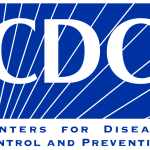News reports say that the Centers for Disease Control and Prevention (CDC) is working hard to regain the public’s trust after the COVID failures, by pledging to put science ahead of politics. However, its recent announcement that doctors may want to test their patients’ blood for PFAS – the “forever chemicals” – is a step back from scientifically-driven decisions.
EPA
Pharma companies have taken to combining over-the-counter drugs into the same pill or bottle and charging higher prices. There's little evidence this marketing practice benefits anybody but said pharma companies. There's a new pesticide scare loose in the headlines: the weedkiller paraquat allegedly causes Parkinson's Disease. It's a phony scandal cooked up by activists and trial lawyers.
The Roman politician Cicero once said, “When there is no basis for an argument, abuse the plaintiff.” Some interpret this to mean that the best defense is a good offense. I’ve another interpretation: When you have no explanation – deflect, defer, confound, and confuse the listener with irrelevancies. That about sums up the latest rhetoric of climate change deniers.
Environmental activists rely on several go-to tactics when fomenting fear of pesticides. One of their favorite methods is recruiting fake whistleblowers – often retired government scientists – who will spread conspiratorial nonsense about regulatory agencies and other researchers. Here's a real-world example of the "phony whistleblower gambit."
Politicians are attacking a safe and important class of pesticides – neonicotinoids – with unwarranted bans and restrictions. These policies will be devastating to farmers, costly to consumers, and damaging to the environment.
Science skepticism – my how it has changed over the past few decades.
In March 2023, the EPA proposed controversial drinking water regulations for two “forever chemicals,” PFOA and PFOS - setting extremely low allowable levels for both. On May 30, the public comment period ended. How EPA responds to public comments could significantly shape the final rule. This article examines the Administrative Procedures Act (APA) requiring agencies to consider public comment and a few of the significant comments received on the proposed rule.
EPA has a long history of pandering to activists, encouraging them to sue the Agency and then capitulating to their agenda. Their stock in trade is shoddy science and dishonesty, resulting in farmers deprived of safe, effective pesticides.
A concerning shortage of Adderall, one of the drugs commonly used to treat attention deficit hyperactivity disorder (ADHD), is putting patients at risk. What caused it, and how can we fix it? The EPA has set new guidelines to keep PFAS out of drinking water. There's a problem, however: the agency's standards are absurd.
As a relative newbie to the world of science writing to the public, I want to thank ACSH for letting me write about my favorite subject – science and health. Two articles from the last year have special meaning to me.
The Environmental Protection Agency (EPA) is in the process of making a remarkable decision and one that will have repercussions throughout the US. Its proposed safe levels in water for the “forever” chemicals perfluorooctanoate (PFOA) and its sulfonic acid (PFOS) are at extraordinary odds with other national authorities.
The discharge of ballast water used to balance a ship is a real man-bites-dog story. This is an issue where environmental groups, public health organizations, businesses, trade associations, tribes, and states sing from the same hymnal, yet the EPA refuses to implement meaningful regulations. What is the EPA drinking? It always wants to regulate, even when it shouldn’t.










